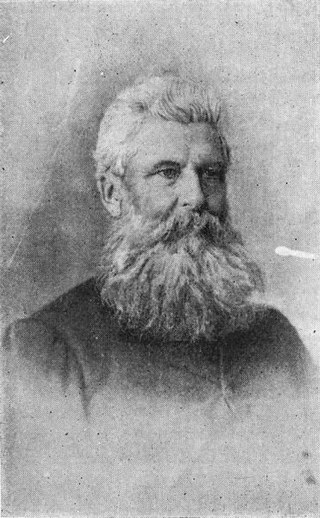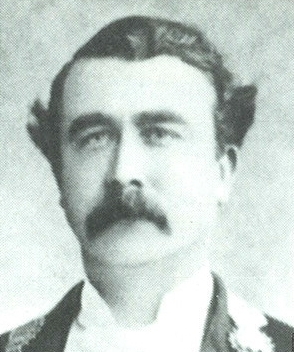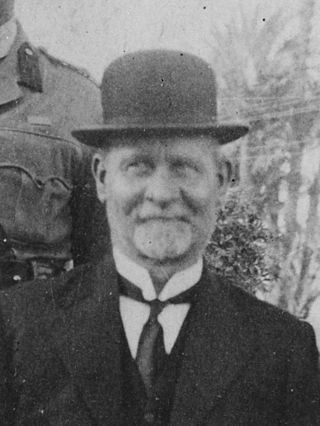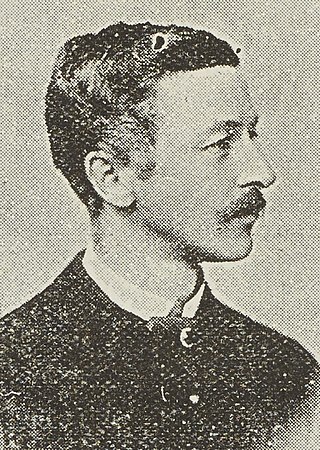
Arthur Penrose Seymour was a 19th-century New Zealand politician from Picton. He was the 4th Superintendent of the Marlborough Province and was a member of the provincial government for all 16 years of its existence. With his strong advocacy for Picton, he successfully had the Seat of Government moved to Picton. When the Blenheim party secured a majority in the Provincial Council by 1865, Seymour negotiated the removal of the Seat of Government back to Blenheim.

Selwyn is a current electorate in the New Zealand House of Representatives, composed of towns on the outskirts of Christchurch city. The electorate was first formed for the 1866 election and has been abolished three times during its history. It was last re-established for the 2008 election and has been held by Nicola Grigg for the National Party since the 2020 election.
Wairau was a parliamentary electorate in the Marlborough Region of New Zealand. It was one of the initial 24 New Zealand electorates and existed from 1853 until its abolition in 1938, when it was succeeded by the Marlborough electorate. The electorate had 13 representatives during its existence. The 1861 election in the Wairau electorate was notable in that a later Premier, Frederick Weld, was unexpectedly and narrowly defeated by William Henry Eyes.
Christchurch was a parliamentary electorate in Christchurch, New Zealand. It existed three times. Originally it was the Town of Christchurch from 1853 to 1860. From the 1860–1861 election to the 1871 election, it existed as City of Christchurch. It then existed from the 1875–1876 election until the 1881 election. The last period was from the 1890 election to the 1905 election. Since the 1946 election, a similarly named electorate called Christchurch Central has been in existence.

Charles Edward Button was a solicitor, Supreme Court judge, Mayor of Hokitika and later Birkenhead, and an independent conservative Member of Parliament in New Zealand. Born in Tasmania, he came to New Zealand with his wife in 1863. He first lived in Invercargill, then in Westland, and after a brief period in Christchurch, he settled in Auckland. He was an MP for two periods, and when he was first elected to Parliament, he beat his colleague, friend, political opponent, and later Premier Richard Seddon; this was the only election defeat ever suffered by Seddon.

Charles Partridge Hulbert was Mayor of Christchurch in from December 1883 to December 1885.

Aaron Ayers arrived in Christchurch, New Zealand from England as a newly married man in his mid 20s. He was a hairdresser and tobacconist for two decades before entering the auctioneering business. He was elected Mayor of Christchurch in 1885 unopposed, and was re-elected a year later in the most keenly contested mayoral election thus far, narrowly beating Charles Louisson. He retired after his second term as mayor. In 1887 he contested a 1887 by-election for Heathcote and the 1887 election for Christchurch South, but came second on both occasions. After his mayoralty, he lived mostly a private life and was known as an avid gardener.

Henry Dodson was a brewer and a 19th-century Member of Parliament from Marlborough, New Zealand.

Hugo Friedlander was a New Zealand businessman, local politician, and horse breeder from Ashburton.

The mayor of Blenheim officiated over the borough of Blenheim, New Zealand. The office was created in 1869 when Blenheim became a borough, and ceased with the 1989 local government reforms, when Blenheim Borough was amalgamated with Picton Borough and Marlborough County Council to form Marlborough District. There were 31 mayors of Blenheim. The last mayor of Blenheim, Leo McKendry, was elected as the first mayor of Marlborough.
The Mayor of Marlborough officiates over the Marlborough District of New Zealand, which is administered by the Marlborough District Council, with Blenheim as its main town. The role was created as a result of the 1989 local government reforms, when Blenheim Borough was amalgamated with Picton Borough, and Marlborough County to form Marlborough District.
The Mayor of Hokitika officiated over the borough of Hokitika in New Zealand. The office was created in 1866 when Hokitika became a municipality and a borough two years later, and ceased with the 1989 local government reforms, when Hokitika Borough and Westland County merged to form Westland District. The first Mayor of Hokitika was James Bonar.
The Mayor of Grey, often referred to as the Mayor of Greymouth, officiates over the Grey District of New Zealand which is administered by the Grey District Council with its seat in Greymouth. The current Mayor is Tania Gibson. Two predecessors to this office were the Mayor of Greymouth, officiating over the Greymouth Borough Council from 1868, and from 1877 the chairman of the Grey County Council.

The 21 June 1875 Wairau by-election was a by-election held in the Wairau electorate in the Marlborough Province during the 5th New Zealand Parliament. The by-election was caused by the resignation of incumbent MP Arthur Seymour and was won by Joseph Ward, who defeated William Sefton Moorhouse. Ward was a well-known politician in Marlborough. Moorhouse had political seniority over Ward and was at the time Mayor of Wellington, but had no personal connection to Marlborough.

The Christchurch mayoral election held on 27 November 1878 was contested by the incumbent mayor, Henry Thomson, and senior Christchurch City Councillor Charles Thomas Ick. The election was won by Ick with a large margin.

The Mayor of Ashburton officiates over the Ashburton District of New Zealand's South Island. The district is administered by a district council. From 1878 until the 1989 local government reforms, the area was administered by a borough council. Neil Brown is the current mayor of Ashburton; he was elected in the 2019 local elections.

The Mayor of Lyttelton was the head of the municipal government of Lyttelton, New Zealand. The position existed from 1868, when the Borough of Lyttelton was formed.
Samuel Rollin Webb was a New Zealand businessman and local politician. He came to New Zealand with his family as a boy and took over his father's fruiterer and fruit grower business as a young man. Politically ambitious, he was mayor of Lyttelton for eight years spanning three periods. He stood for parliament on four occasions between 1881 and 1905 but was unsuccessful.

The mayor of Richmond was the head of the municipal government of Richmond, New Zealand. The position existed from 1891, when the Borough of Richmond was formed, until the borough was amalgamated into Tasman District in the 1989 local government reforms.

Alfred George Fell was a New Zealand businessman who served as the sixth mayor of Blenheim.
















